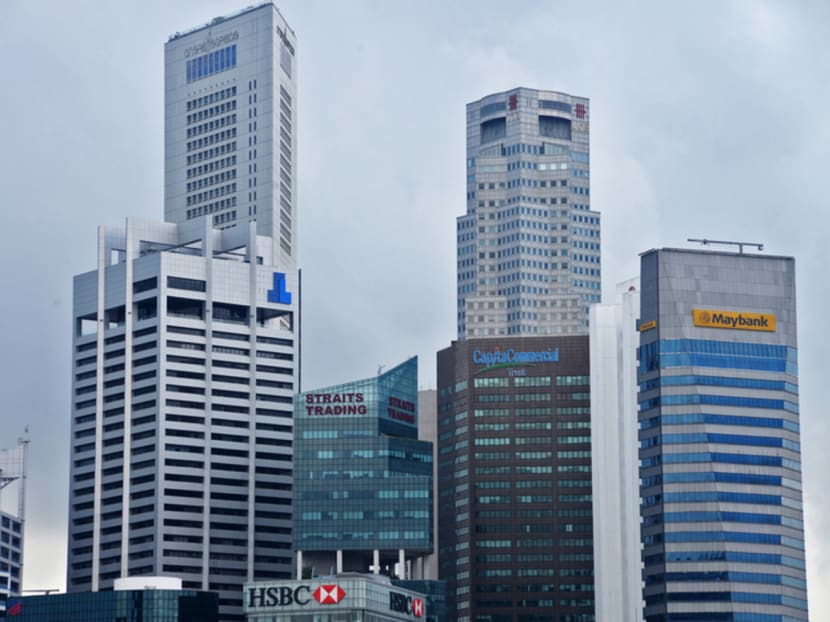Why is Singapore climbing and HK declining?
In the latest iteration of the Global Financial Centres Index (GFCI) released early this month, Singapore emerged as the third most competitive financial centre in the world, overtaking Hong Kong.
In the latest iteration of the Global Financial Centres Index (GFCI) released early this month, Singapore emerged as the third most competitive financial centre in the world, overtaking Hong Kong.
While the Republic has a mere two-point lead over the Chinese territory, this still makes Singapore the most competitive financial centre in Asia. There are several factors driving the continued rise of Singapore in global financial centre rankings, and Hong Kong’s gradual decline. All are related to effective governance.
Hong Kong’s decline on the GFCI should come as no surprise to many. The city’s economic fortunes have been waning, with its growing political instability.
Beginning with the Occupy Central movement in September 2014 and culminating in the Mongkok civil unrest earlier this year, Hong Kong has experienced major disruptions to economic and financial activities within its city centre. Such political instability has affected the city’s attractiveness as an investment destination. The biggest blow to the city’s came in the form of HSBC’s decision on Feb 15 — almost a week after the Mongkok incident — not to relocate its headquarters from London to Hong Kong.
To be sure, HSBC’s decision was also partly influenced by unstable Chinese financial markets.
Hong Kong has also found itself embroiled in the recent Panama Papers leaks. Documents from Panama-based law firm Mossack Fonseca reveal that Hong Kong is a top centre for secretive offshore financial services.
In the aftermath of the Panama Papers leaks, Singapore’s Ministry of Finance and the Monetary Authority of Singapore reiterated that the country has a robust regulatory and supervisory system capable of tackling cross-border tax evasion and avoidance.
Singapore’s efforts at addressing offshore tax evasion had taken centre-stage in 2009, when the city-state was first placed on the Organisation for Economic Co-operation and Development’s (OECD) “grey list” of tax havens. It has since been removed from the list, having signed information exchange agreements with various countries, and after signing up with the OECD’s multilateral tax-sharing treaty and enforced compliance with the United States’ Foreign Account Tax Compliance Act. In short, Singapore has been laying the foundations for a robust regulatory framework that ensures the legitimacy and transparency of financial flows in the city.
Aside from regulation, Singapore has also sought to ensure the relevance of its financial sector, especially in light of emerging trends. In particular, there has been a strong focus on financial innovation and financial technology (FinTech).
For instance, MAS has revealed plans to establish an all-in-one addressing system that will allow residents to make electronic payments using only the payee’s mobile number, e-mail address or social network account, without requiring the payee’s bank account number.
Such plans represent Singapore’s growing focus on FinTech as a potential source of financial sector growth and an enabler of further financial innovation in the city-state.
This comes on the back of dwindling global economic growth and greater competition from other emerging financial centres.
CHALLENGES AHEAD
Singapore’s rise on the GFCI ranking suggests a certain level of success in MAS’ efforts to regulate and develop Singapore’s financial sector. It also highlights Singapore’s political stability and regulatory transparency as key driving forces of its financial sector development. This alludes to a more fundamental point: Singapore’s pre-eminence in financial centre rankings, such as the GFCI, hinges not only on the strength of its economy but the capacity of its governance as well.
In Singapore, two key features of its financial governance model have proven particularly important in driving its continued success as a global financial centre — a robust and transparent legal-regulatory system that enforces compliance with international standards, and the constant lookout for future engines of financial sector growth such as the FinTech sector.
These two features are represented by the two main forms of financial policy instruments utilised by the government in effecting financial governance: stabilising instruments and development-oriented instruments.
Stabilising instruments typically include regulations that ensure the stability of Singapore’s financial system. This could be in the form of restrictions on the types of financial activities that are permissible as well as the measures put in place to ensure compliance. Conversely, development-oriented instruments involve a constant scanning of the economic horizon and the use of subsidies and incentives to stimulate the development of promising new sectors. For instance, MAS has committed S$225 million to the development of a FinTech ecosystem, under its Financial Sector Technology & Innovation Scheme.
However, there remain key challenges that Singapore will need to overcome in order to ensure the sustainability of its financial sector. First, there is a need to further foster financial innovation. This will require going beyond existing state-driven initiatives to placing a deeper focus on encouraging ground-up innovation, which, in turn, may require a paradigm shift in both financial practices and regulatory framework.
Second, Singapore faces the prospect of softening Asian financial markets. Compared to the previous iteration of the GFCI, the latest ranking saw a drop from 5 to 3 in the number of Asian financial centres within the top 10. This is in line with slowing regional growth. Given its lack of an economic hinterland and the limited size of its domestic markets, Singapore will need to continuously seek out new markets and sources of growth.
ABOUT THE AUTHOR:
Woo Jun Jie is an Assistant Professor in the Public Policy and Global Affairs Programme of the School of Humanities and Social Sciences, Nanyang Technological University.







